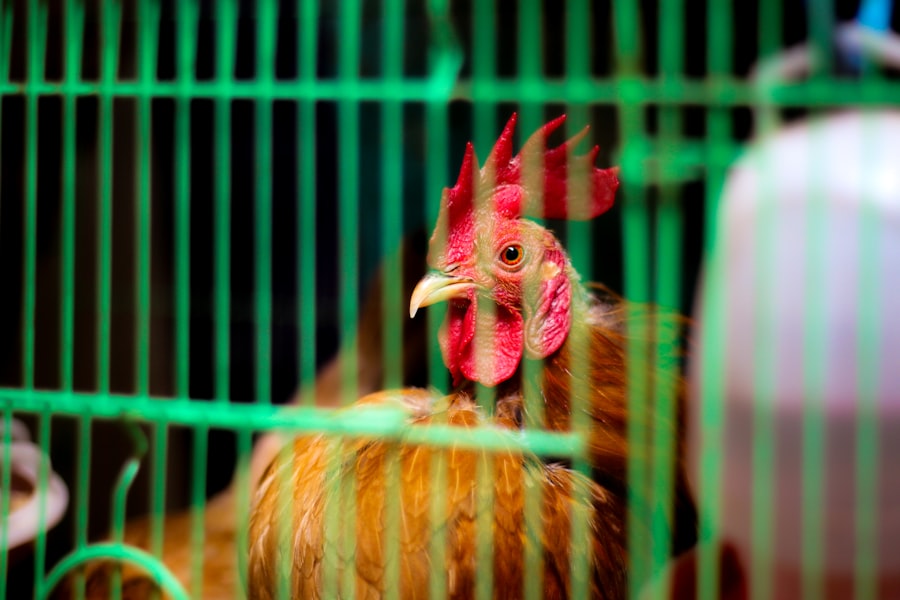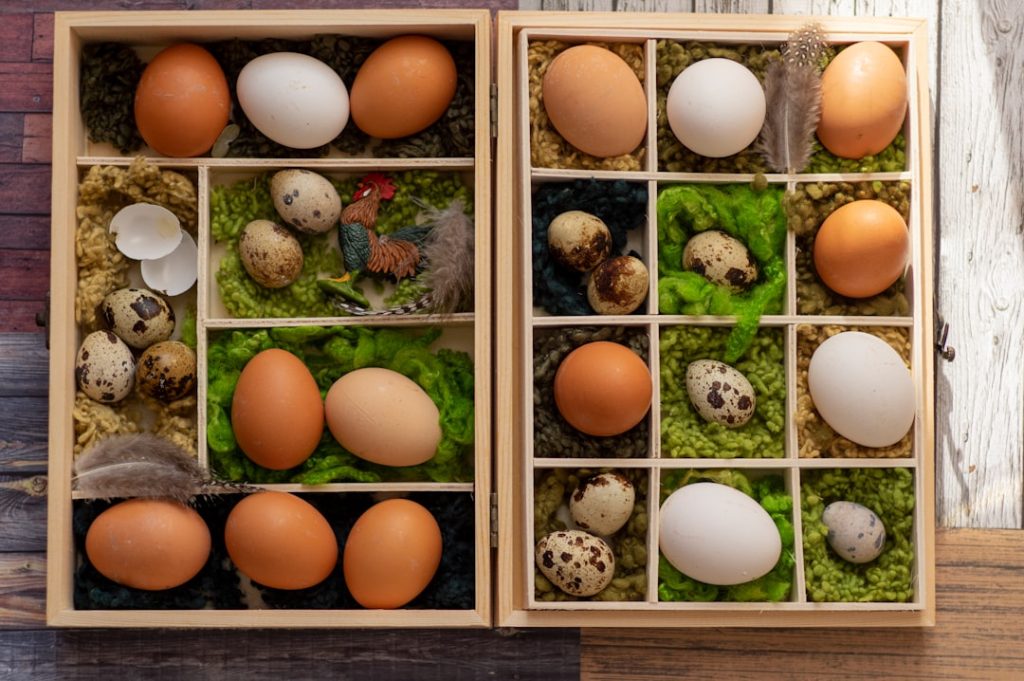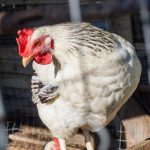When raising chickens, providing a spacious and safe coop is crucial for their health and well-being. A roomy coop allows chickens to move freely, stretch their wings, and engage in natural behaviors like scratching and dust bathing. Adequate space prevents overcrowding, which can lead to stress and aggression within the flock.
Proper ventilation in a spacious coop also reduces the risk of injury and disease by preventing the accumulation of waste and ammonia. Safety is equally important in coop design. A secure coop should be predator-proof, featuring sturdy walls and a robust roof to protect chickens from threats such as foxes, raccoons, and birds of prey.
Regular inspections for wear and tear, along with timely repairs and upgrades, are essential to maintain the coop’s integrity. A well-designed, spacious, and secure coop not only promotes the physical health of chickens but also contributes significantly to their overall well-being and contentment.
Table of Contents
- 1 Offering a varied and nutritious diet
- 2 Ensuring access to fresh water at all times
- 3 Providing opportunities for exercise and foraging
- 4 Creating a comfortable and clean living environment
- 5 Offering social interaction and companionship
- 6 Implementing regular health checks and preventative care
- 7 FAQs
Key Takeaways
- A spacious and safe coop is essential for the well-being of your chickens, providing them with room to move and protection from predators.
- Offering a varied and nutritious diet is crucial for the health of your chickens, including a mix of grains, greens, and protein sources.
- Ensuring access to fresh water at all times is important to keep your chickens hydrated and healthy.
- Providing opportunities for exercise and foraging allows your chickens to engage in natural behaviors and stay active.
- Creating a comfortable and clean living environment is key to preventing disease and keeping your chickens happy and healthy.
- Offering social interaction and companionship is important for the mental well-being of your chickens, as they are social animals.
- Implementing regular health checks and preventative care, such as vaccinations and parasite control, is essential for maintaining the overall health of your flock.
Offering a varied and nutritious diet
Nutritious Food Options
It’s crucial to offer a variety of foods, including a high-quality commercial feed specifically formulated for chickens, as well as fresh fruits and vegetables, grains, and protein sources such as mealworms or kitchen scraps.
Access to Clean Water
In addition to a varied diet, it’s vital to ensure that chickens have access to clean water at all times. Water is essential for digestion, temperature regulation, and overall health, so it’s important to regularly check and refill their waterers to ensure they always have access to fresh, clean water.
Benefits of a Balanced Diet
Offering a varied and nutritious diet not only supports the physical health of the chickens but also contributes to their mental stimulation and overall happiness.
Ensuring access to fresh water at all times
Ensuring access to fresh water at all times is crucial for the health and well-being of chickens. Water is essential for digestion, temperature regulation, and overall health, so it’s important to ensure that chickens always have access to clean water. This means regularly checking and refilling their waterers to ensure that the water is fresh and free from contaminants.
In addition to providing clean water, it’s important to consider the placement of the waterers within the coop. Placing waterers in multiple locations can help prevent competition and ensure that all chickens have equal access to water. It’s also important to consider the type of waterer used, as some designs may be more prone to contamination or spillage than others.
By ensuring access to fresh water at all times, you can help support the overall health and well-being of your flock.
Providing opportunities for exercise and foraging
Providing opportunities for exercise and foraging is important for the physical and mental well-being of chickens. Allowing chickens to engage in natural behaviors such as scratching, pecking, and foraging not only helps to keep them physically active but also provides mental stimulation and enrichment. This can be achieved by providing access to an outdoor run or allowing chickens to free-range in a safe and supervised environment.
In addition to outdoor space, providing enrichment activities such as hanging treats or toys can help keep chickens engaged and active. These activities not only provide physical exercise but also help prevent boredom and reduce stress within the flock. By providing opportunities for exercise and foraging, you can help support the overall health and happiness of your chickens.
Creating a comfortable and clean living environment
Creating a comfortable and clean living environment is essential for the health and well-being of chickens. A clean coop helps prevent the buildup of waste and ammonia, which can lead to respiratory issues and other health problems. Regularly cleaning the coop, including removing soiled bedding and replacing it with fresh bedding, helps maintain a clean living environment for the chickens.
In addition to cleanliness, it’s important to consider the comfort of the coop. This includes providing adequate ventilation to prevent overheating in the summer and drafts in the winter, as well as ensuring that the coop is dry and free from leaks. Providing comfortable roosting bars and nesting boxes also helps create a cozy living environment for the chickens.
By creating a comfortable and clean living environment, you can help support the overall health and well-being of your flock.

Offering social interaction and companionship is crucial for the mental well-being of chickens. As social animals, chickens thrive on interaction with their flock mates. To achieve this, it’s essential to provide opportunities for socialization by keeping a small flock size, introducing new chickens gradually, and providing ample space for them to interact with each other.
Benefits of Human Interaction
In addition to social interaction within the flock, it’s also beneficial to provide human interaction. Spending time with your chickens, talking to them, and even hand-feeding treats can help build trust and create a bond between you and your flock.
Creating a Positive Environment
Offering social interaction and companionship not only supports the mental well-being of the chickens but also helps create a positive and enriching environment for them. By providing a stimulating and engaging environment, you can promote the overall health and happiness of your chickens.
Implementing regular health checks and preventative care
Implementing regular health checks and preventative care is essential for maintaining the health and well-being of chickens. This includes regularly inspecting the flock for any signs of illness or injury, such as changes in behavior, abnormal droppings, or respiratory issues. Early detection of health issues can help prevent the spread of disease and improve treatment outcomes.
In addition to regular health checks, it’s important to implement preventative care measures such as vaccination, parasite control, and biosecurity protocols. This helps reduce the risk of infectious diseases and parasites within the flock. Providing a clean living environment, offering a varied and nutritious diet, and ensuring access to fresh water at all times also contribute to preventative care for chickens.
By implementing regular health checks and preventative care measures, you can help maintain the overall health and well-being of your flock.
If you’re looking for more tips on how to keep your chickens happy in Stardew Valley, you might want to check out this article on turning a shed into a chicken coop. It offers valuable insights on how to create a comfortable and functional living space for your feathered friends, which can contribute to their overall well-being and happiness.
FAQs
What are some ways to keep chickens happy in Stardew Valley?
Some ways to keep chickens happy in Stardew Valley include providing them with a clean and spacious coop, feeding them regularly, allowing them to roam outside, and ensuring they have access to fresh water.
What should I feed my chickens in Stardew Valley to keep them happy?
In Stardew Valley, you can keep your chickens happy by feeding them a variety of items such as hay, grass, and even certain types of vegetables and fruits. You can also purchase chicken feed from the local store.
How can I ensure my chickens stay healthy and happy in Stardew Valley?
To ensure your chickens stay healthy and happy in Stardew Valley, it’s important to regularly clean their coop, provide them with a good diet, and make sure they have enough space to move around. Additionally, interacting with them daily can also contribute to their overall happiness.
What are the benefits of keeping chickens happy in Stardew Valley?
Keeping chickens happy in Stardew Valley can result in higher quality eggs and a better relationship with your animals. Happy chickens also produce more eggs, which can be sold for profit or used in cooking recipes.
Meet Walter, the feathered-friend fanatic of Florida! Nestled in the sunshine state, Walter struts through life with his feathered companions, clucking his way to happiness. With a coop that’s fancier than a five-star hotel, he’s the Don Juan of the chicken world. When he’s not teaching his hens to do the cha-cha, you’ll find him in a heated debate with his prized rooster, Sir Clucks-a-Lot. Walter’s poultry passion is no yolk; he’s the sunny-side-up guy you never knew you needed in your flock of friends!







